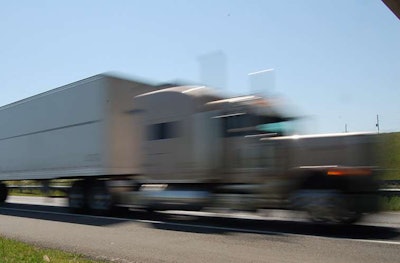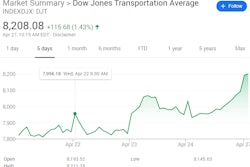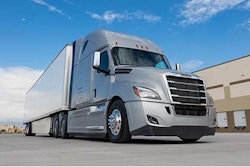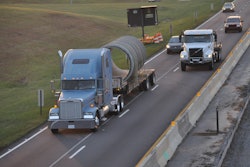 If a truck is working, in most cases premium payments won’t be forgiven outright or paused, since there’s still exposure for crashes and claims. But providers are working with operators to provide extended payment options for premiums or pushing due dates.
If a truck is working, in most cases premium payments won’t be forgiven outright or paused, since there’s still exposure for crashes and claims. But providers are working with operators to provide extended payment options for premiums or pushing due dates.Insurance providers have instituted measures to work with owner-operators and small-fleet owners who can’t afford to pay their premiums due to lost business. Chiefly, most providers have placed a temporary halt on cancelling policies for non-payment, and most are allowing truckers to temporarily suspend their policies and their premium payments if they pledge not to work during that time.
These leniency options are in response to the economic stall caused by the COVID-19 coronavirus outbreak and social distancing measures which have slowed, in some cases dramatically, freight movement across all sectors of the economy.
“Every insurer is handling it a little differently,” says Scott Lyden of broker Hadley & Lyden, who works primarily with small fleets, many of them single-truck operators. “My advice to truckers is to get in touch with your agent and see what options are available for your particular policy.”
Simply missing premium payments and ignoring late notices will “get your policy cancelled,” he said. “We’ve been getting a lot of calls from our clients. The ones that are proactive are going to find a solution to the problem.”
If a business is operating with trucks working, in most cases premium payments won’t be forgiven outright or paused, given ongoing exposure to potential crashes and claims. But providers are working with operators to provide extended payment options for premiums or pushing due dates, if need be.

Progressive Commercial, one of the largest providers in the owner-operator and small-fleet market, has said it won’t cancel policies in the case of non-payment through May 15. “We are both aware of and sensitive to how COVID-19 has caused unprecedented disruption to businesses and communities,” said Peter Niro, product development manager at Progressive. The company is “working with customers to extend payment leniency,” as well as helping “customers lower their bill by updating their policy to align with changing insurance needs.”
Most providers have put a similar temporary moratorium on cancellations for skipping premiums, according to Joe Hutelmyer, chief underwriting officer for AmWins Transportation. “The insurance companies understand the position the truckers are in and they appreciate it,” he said. “Best bet is to contact your agent and explain your situation.”
Many states have issued directives requesting that insurers not cancel policies for non-payment. Some states have even issued orders forbidding cancellations. But those orders do not ultimately relieve premiums from being due for the time period covered, meaning operators would still owe those premiums if they do not pay and do not pause their policies.
For policies being paused, insurers in some cases are asking truckers to send in their registration tags to prevent them from operating until the policy is active again. “They won’t charge you for [the policy], but they want to know you’re not going to be running the truck,” said Hutelmyer. “Other companies are giving them the benefit of the doubt and just asking for a list of VIN numbers. Some are asking for a signed warranty saying you’re not going to [operate].”
For small fleets, most insurers are allowing them to pause coverage on certain trucks while retaining coverage on others — a practice typically not allowed. Providers can also suspend certain types of coverage for trucks that have a loan payment and require insurance, says Lyden, such as temporarily removing cargo and liability but retaining some form of basic collision or comprehensive coverage.
All of these issues are mostly isolated to small fleets and owner-operators. Fleets with more than 10 or 15 trucks generally are insured differently than smaller carriers. Their policies are set as so-called reportable policies, based on their number of trucks, miles operated and gross revenue reported to insurers on a monthly basis. “So when revenue drops off or you’re not running any miles, the premium tracks with that,” said Lyden.
But roughly 90% of trucking policies are so-called scheduled policies — owner-operator and small fleet policies that have regular, pre-determined premium payments.
An interesting twist in the insurance market currently, said Tommy Ruke, head of the Motor Carrier Insurance Education Foundation, is that crash risk is lower, with little traffic on most roads. That’s led most major insurers on the consumer auto side to issue small refunds to motorists, given the dramatic drop in the number of crashes and claims in recent weeks.
Such refunds aren’t being issued on the commercial insurance side, but it is helping relieve some of the pressure in the market, said Ruke. “One underwriter joked to me earlier this week that he could cover all the trucks right now if he only had to do it for the next 60 days.”










